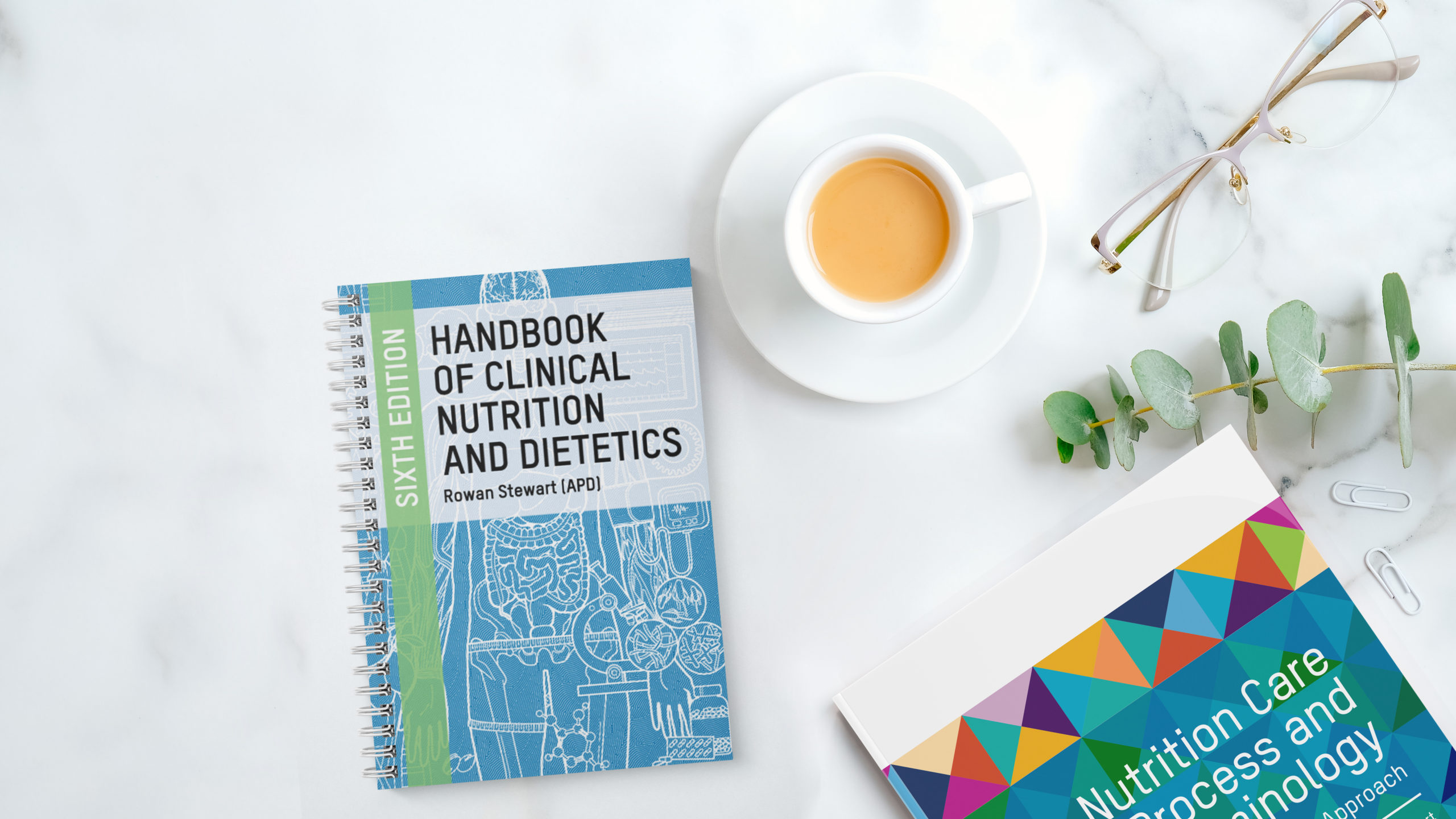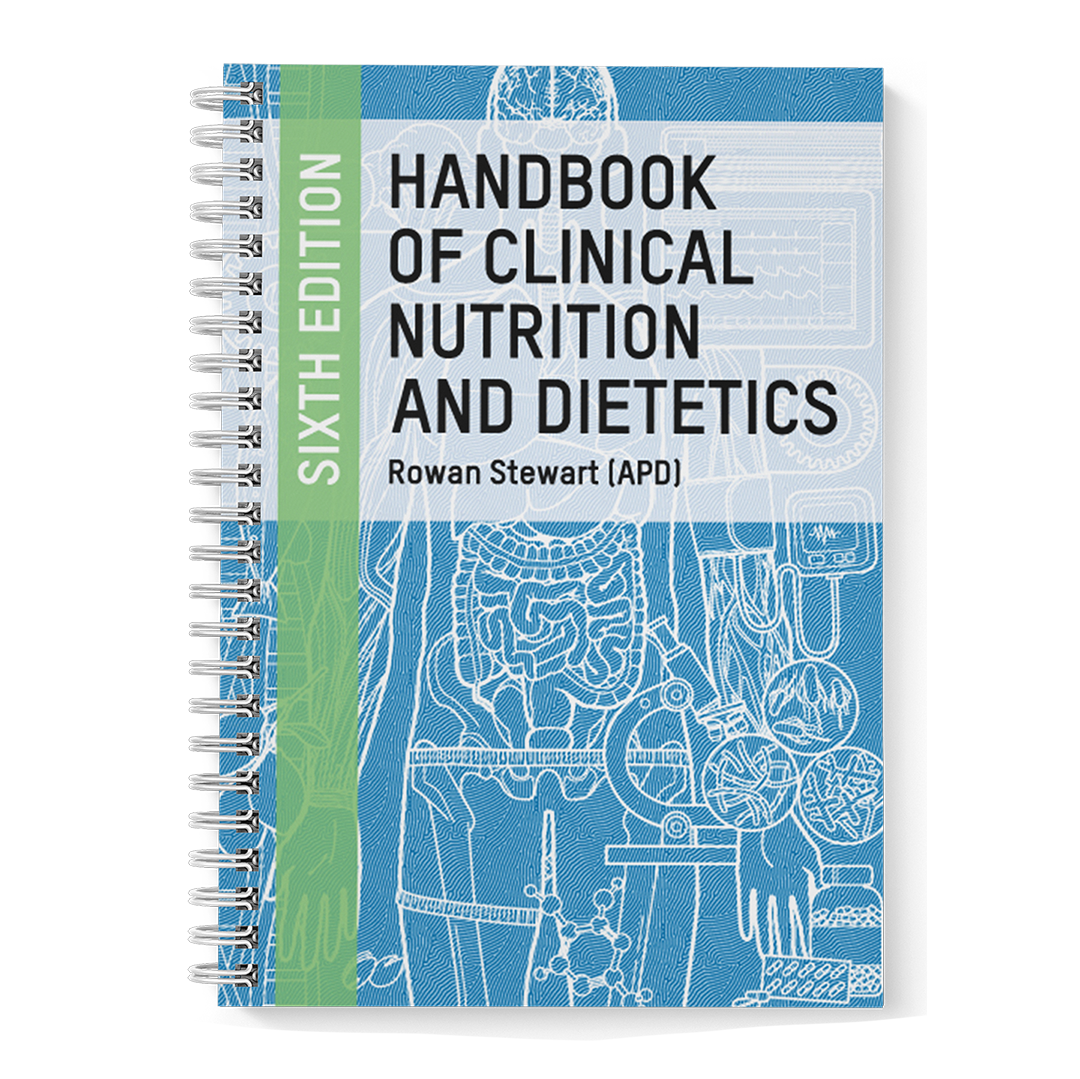6th Edition Handbook Updates
By Rowan Stewart | February 10, 2020
We are delighted to bring you the 6th Edition Handbook of Clinical Nutrition and Dietetics. Can you believe it’s been over 13 years since the very first edition went to print? What was once a tiny 100-page book has developed into a whopping 350-page resource used by universities and practitioners nationally and overseas.
Many of the refinements and improvements in the 6th Edition of the Handbook of Clinical Nutrition and Dietetics have been made in response to feedback from students, academics and clinicians who use the book each day. Thanks to all of you who let us know the information you wanted included (and what wasn’t useful). You’ll recognise your feedback throughout the text. For example, many of you were sorry to see the Nutrition Support Chapter go in the 5th Edition. Well, it’s back at your request, with more information than before.
We’d like to send a very special thanks to our team of expert dietitians who contributed sections and reviewed chapters. The final weeks before print were high-pressure. A big thank you for making important improvements and suggestions right up until the finish.
The Updates
Replacements
- The International Dysphagia Diet Standardisation Initiative (IDDSI), a global initiative to improve the lives of people world-wide living with dysphagia, replaces the Australian Standardised Definitions and Terminology for Texture-modified Foods and Fluids.
- The new Kidney Disease Guidelines released by National Kidney Foundation, not long before we went to print, replaces the Evidence-based Practice Guidelines by Ash et al (2006). This new information includes medical nutrition therapy for renal stones as well as acute kidney injury, gout and nephrotic syndrome.
Significant Revisions from the Australian Government
Important updates from the Australian Government include:
- The recent revisions to the Nutrient Reference Values in Chapter 1.
- The latest food composition data from the Australian Food Composition Database (formerly NUTTAB) in Chapter 3.
- The new alcohol guidelines
- The latest recommendations on dairy fat
- Updates to the AIS Sports Supplement Framework Classification System tables from in Chapter 12: Sports Nutrition
Critical Revisions by Dietetic Experts
There are extensive expert revisions to Coeliac Disease, Refeeding Syndrome, Medications and Interactions and Sports Nutrition.
Key assessment and monitoring and evaluation information, NCP diagnosis statements and the most up-to-date counselling strategies are now proposed for each medical condition.
Additions at Your Request
The inclusion of new sections/chapters on:
- Eating Disorders
- Paediatric Nutrition
- Nutrition Support
(including the latest feeds and formulae nutrition composition tables for a selection of commonly used products)
What’s familiar?
The well-used clinical tools remain including height-weight tables, BMI tables, and energy and macronutrient requirement equations. These have been repositioned and updated to reflect new material from major nutrition and medical journals and systematic reviews.
Why you should update your resources
You wouldn’t believe the number of dietitians we meet who tell us they are still on the 3rd or 4th Edition! While we LOVE the loyalty and support of our early readers, it’s so important to stay on top of the latest research and guidelines. The Nutrition and Dietetics field is constantly evolving. What may have been recommended 10 or even 5 years ago may not be best practice today.
This last review took out team more than 6 months to put together so trust us when we say, a lot has changed. We’ve called on experts from a range of fields, from Coeliac Disease to Chronic Kidney Disease to Sports Nutrition. This one is packed full of new evidence-based information that’s vital to your patients and your practice. If you can see an apple on the front cover of your Handbook you’ll know it’s time for an update.
Orders for the Handbook of Clinical Nutrition and Dietetics, 6th Edition are available here.
How to accumulate CPD points
Struggling to accumulate your CPD logs for APD status? The NCPro online cases offer an excellent way to learn new clinical material and accumulate CPD points.
The NCPro online cases take you through the NCP using Dietetic Practice Simulations. This learning method is a carefully constructed approach to a real nutritioncare scenario that allows you to practice dietetic skills online. The NCPro model relies upon the use of standardised patients (SP) who are real people or real patients trained to portray patients and give feedback to learners on their interactions.

